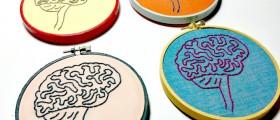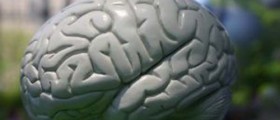
Neuropsychological Evaluation Information
Neuropsychological evaluation (NPE) is a method of assessing behavioral, cognitive, motor, and language abilities. Neuropsychological evaluation reveals information about cognitive impairment, allows a neuropsychologist to make a diagnosis, and points to areas of the brain where the problem may be located. The tests provide guidelines for treatment methods and are later used to assess the success or failure of therapy. In order to administer neuropsychological evaluation the person needs to be a trained neuropsychologist. Other tests are often employed to provide a complete picture of the client’s mental functioning such as MRIs and CAT scans. In instances in which the imaging tests reveal an anomaly, the effects of it are tested using the neuropsychological evaluation. Clinical reports, physical examinations, images, and psychological assessment techniques are all used together in order to identify and explain the problem and propose a method of treatment. Each of the tests has limitations but the more diverse tools are used the broader and more thorough the conclusion.What Does Neuropsychological Evaluation Reveal?
Neuropsychological assessment for adults mostly assesses cognitive abilities which often deteriorate over time due to illness, injury, or old age. Depending on the nature of the problem, a neuropsychologist can label and analyze visual, motor, and spatial perception, memory, language ability, attention, and reasoning, organizing, and problem solving abilities. Whether the problem is biological or functional in nature, its elements and potential causes can be expressed via neuropsychological testing. For instance, extent of dementia is diagnosed by a neuropsychologist. Individuals who are experiencing epileptic seizures can also benefit from this type of testing. Those who are in need of rehabilitation due to injury or illness are also referred to a neuropsychologist. Once the injury or illness occurs assessment techniques show their extent and the damage that has been left. When the patient is placed under therapy the tests are again used to monitor the progress and evaluate the outcome of the treatment. In addition, a neuropsychologist determines whether a person is competent to stand a trial or manage financial affairs. They can also decide to place a patient under supervised care if estimated the person is incapable of living independently. The neuropsychological evaluation shows if the person is ready to go back to their daily routines following a trauma or injury to the head. Further, the tests done at a neuropsychologist’s office demonstrate the effects or consequences of medical illness on cognitive abilities. For example, individuals who are diabetic or suffer from chronic obstructive pulmonary disease are often tested to see whether the mental capabilities are deteriorating due to either illness or prescribed medications. Patients infected with HIV or who have gone through experimental drug trials are also assessed and monitored effectively by neuropsychological methods. The outcome of central nervous system procedures is also evaluated, especially to compare the person’s state and capabilities before and after surgery. Neuropsychologists assess and treat individuals suffering from multiple sclerosis, stroke, dementia, Alzheimer’s, and other illnesses that affect cognition. They inspect the effects of medications and other forms of therapy on the brain and mental functioning. Persons who have been exposed to toxins are also referred to neuropsychologists for evaluations. Finally, specialists in the area of neuropsychology assess individuals with developmental disorders and learning disabilities, or mainly their cognitive capabilities, academic achievement, and ability to adjust in school. They decide whether someone will be placed in special education classes or institutions and will follow the progress of the patients.Limitations
Neuropsychological evaluation is not particularly helpful in a few cases. If a patient has severe psychiatric disturbances or is suffering from personality disorders neuropsychologists are not equipped to help. Also, if dementia or other illnesses affecting cognitive abilities is in its advanced stages there is little that can be done. In the cases of early recovery from brain injury the tests will reveal little information that could be used to compare the person’s functioning before and after the incident. The possible causes of injury may be from infection, stroke, anoxia, and so on. Brief assessment can be done but in order to make a detailed diagnosis a neuropsychologist has to wait for the consequences to reveal themselves.Neuropsychological Evaluation Procedure
Neuropsychological evaluation usually takes a relatively long time as there is a battery of tests of that needs to be administered. Individuals should set aside anywhere between 2 to 8 hours for the full assessment. The length of testing depends on the client’s condition, i.e. its complexity and severity. For the elderly or seriously cognitively impaired the testing can be divided into 2 or 3 days. The results of these tests have to be evaluated in terms of the person’s age, sex, level of education, and ethnic background. These elements in the individual’s life greatly influence the data and have to be taken into consideration when interpreting the results, deciding on the diagnosis, and proposing treatment.
















Your thoughts on this
Loading...